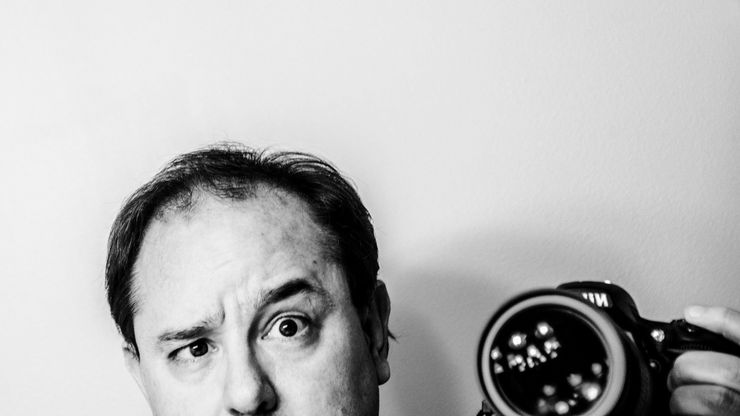How I Write: John Scalzi, author of The Collapsing Empire
The Collapsing Empire is the latest book from John Scalzi, author of the New York Times bestselling series The Old Man's War. John tells us more about his writing process, with everything from where he writes, to what he writes on!

The Collapsing Empire is the latest book from John Scalzi, author of the New York Times bestselling series The Old Man's War. John tells us more about his writing process, with everything from where he writes, to what he writes on!
Hello! Today I am here to tell about the writing of books -- or writing my books anyway. For those of you who are hoping or fearing it is a great and mysterious process, with key sacrifices of goats or aspiring authors to the Gods of Creativity, what follows will likely be a disappointment. But for those of you hoping that 90% of writing is simply about putting the butt into a chair, it may be useful. Because indeed, that’s what it is, for me and just about every other writer I know. But there are some personal variations along the way, and I’ll talk to you about them now.
The Workroom
The vast majority of my books, fiction and non-fiction, have been written in the same place -- my office in my home in Bradford, Ohio. Many writers like to write outside of the home, in part because they become stir-crazy being in one place all the time, but I’m not one of them. Besides, I live in a tiny rural town of 1,800 without so much as a decent coffee shop. So really, it’s writing in my office, or writing in the middle of a cornfield.
The home office is nothing fancy -- basically a 10 foot by 12 foot former bedroom with a corner desk for my computer and monitor, a chair and lounge, and lot of shelves for books and the occasional momento. It’s about 12 steps from my bed to my desk, which makes for a very easy commute.
Occasionally, when I feel restless, I’ll work from another room in the house, usually the downstairs front room which has very comfy chairs, for a chapter or two. And because I travel so frequently these days, I’m gotten better at writing on the road, which is something I never used to be good at. But by and large, my home office is where all the writing gets done. It’s familiar and comfortable, which are two things that work for me when I write.
The Machine (and Software)
I was a freshman in high school in 1984, which is the year the Macintosh arrived, and also the year I started writing short stories. I have literally never used anything other than a computer to write on for anything longer than a quick note. I cannot imagine how people wrote using typewriters or -- good lord -- by hand; it just seems so much work to me. My writing process has been molded by the computer, and by the word processing programs that run on them.
My desktop computer has changed over the years (obviously), but essentially the setup is the same: a Windows box that runs Word, plus as large a monitor as I can fit onto the desk, because I like a layout where I can see several pages onscreen at once (my current 27-inch, 4k monitor can show three full pages without me straining my eyes). I use Word because I’m used to it, and also because it’s the industry standard. For shorter work I’ll sometimes use Google Docs. I have friends who use Scrivener to organise their work but it just confuses me and I conclude they write very differently than I do.
When I travel (or decide to write in another room) I write on a laptop; my current laptop is Chromebook, which I like because it’s inexpensive (so if I lose it when I’m traveling I’m not out a stupid amount, and yes, alas, I’ve lost computers before) and because at this point Internet connection is ubiquitous.
My Process
The process for me is pretty simple: I write from about 8am in the morning until noon, or until I write 2,000 words, whichever comes first. 2,000 words is a good clip for me, in part because I was a pro journalist for years and learned to write quickly on deadline. Some writers can write faster; many write slower. There’s no perfect speed, just the best speed for any particular writer. If I hit noon without 2,000 words, that’s fine, it just means my brain is slightly slower than usual. While I’m writing I usually turn off the Internet -- it’s an attractive nuisance.
I don’t outline; I like making things up as I go. This horrifies some writers I know, who are meticulous outliners. To each their own. I also edit as I go along (you can do that with computers), which means that when I type “The End” I usually just send the manuscript to the editor -- no second or third drafts for me. This doesn’t mean I don’t edit; I edit as much as any writer. I just do it as I roll along, where other writers do a full draft and then redraft. Again, no right way, just the way that works for that particular writer.
I’ve been writing books now for 20 years and my experience really is that it’s not complicated, it’s just mostly sitting down and doing it, one day after another. Inspiration for me happens because I’m writing, not the other way around. In talking with other long-time writers, I’ve learned that’s how it works for most of us.
So that’s how I do it!